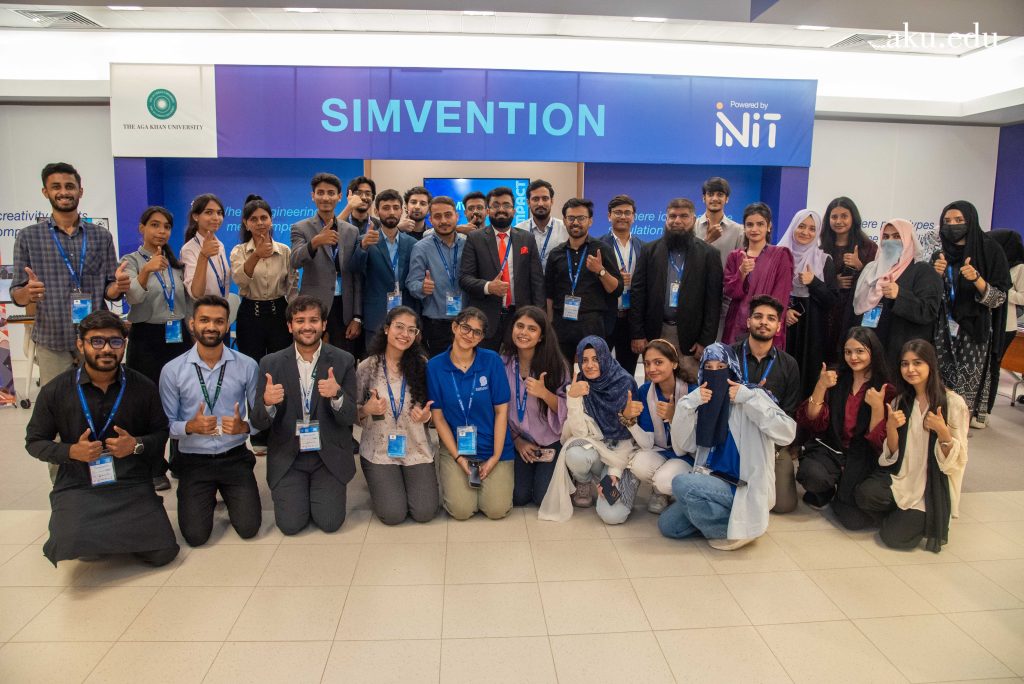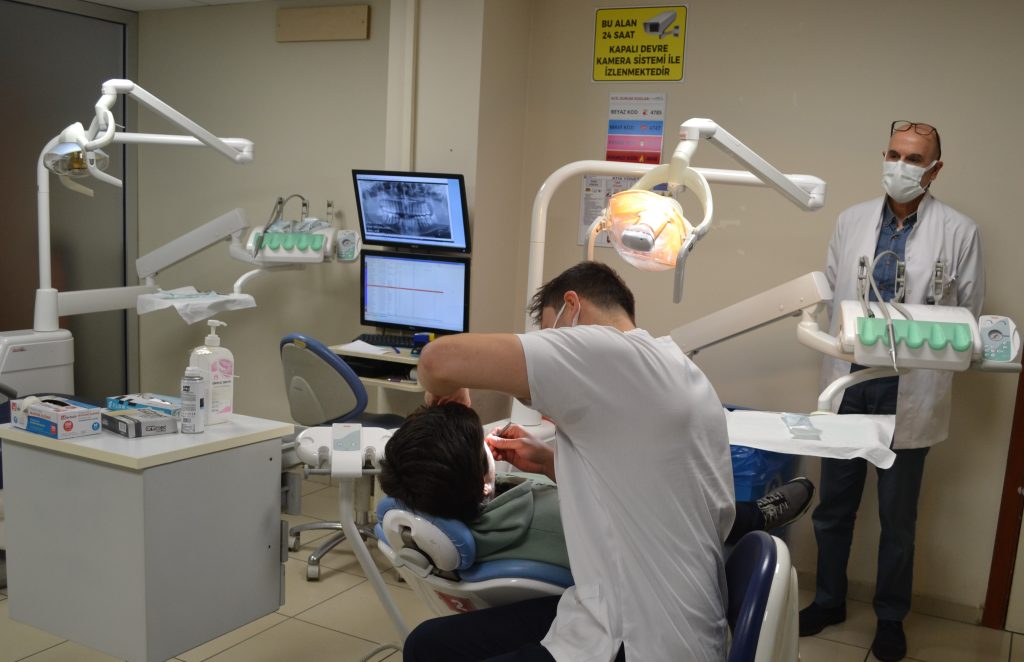Mirette’s journey from respiratory therapist to CEO of HSSI highlights women’s entrepreneurship in healthcare simulation.
International Women’s Day is an annual event to celebrate women’s achievements and spread the message of female empowerment and gender equality globally. And we also want to celebrate women’s empowerment in the simulation business. We caught up with Mirette Dubè, founder and CEO of Healthcare Systems Simulation International (HSSI).
Highlighting the significant impact of dedication and advocacy for patient safety through healthcare systems simulation, her story inspires not only women in healthcare but all aspiring to effect change. Mirette champions the idea that believing in oneself and striving for excellence paves the way for success. Her experience underlines the importance of mentorship, family support, and collaboration in advancing healthcare. Let’s take inspiration from Mirette’s journey to champion patient safety and innovation in healthcare.
Mirette Dubè

Mirette Dubé is the CEO of Healthcare Systems Simulation International Inc.(HSSI), a company offering system-focused simulation consulting and training for healthcare organizations.
HSSI uses simulation and human factors to optimize human centred design to improve safety, operational efficiency, mitigate risk and save cost during all design phases of healthcare construction and testing of processes with your team.
Hi Mirette, we are so glad to have you with us as we embark on this mission to raise awareness of female entrepreneurs in the field of education and simulation in healthcare. Can you share with us what inspired you to enter the field of healthcare simulation and your journey towards becoming the CEO and Co-founder of Healthcare Systems Simulation International (HSSI)?
Thank you for the opportunity to share a little bit about my education and simulation journey raising awareness of women entrepreneurs.
My career began as a critical care respiratory therapist in the mid 1990’s. I was privileged to work in some of the busiest trauma centers in Vancouver (British Columbia) and Calgary (Alberta) with incredibly caring and competent healthcare providers, who inspired me to always advocate for patient safety, remembering it could be our families in these vulnerable positions one day. The concept of simulation was emerging, and fortunately I was able to be involved with it during my critical care role as a frontline professional and educator. Additionally, I pursued several courses and certifications and eventually my master’s in applied science because I value education and lifelong learning and believe in expanding specialized skill sets to successfully change practice.
I loved the interprofessional focus and felt privileged to learn from and train hundreds of healthcare teams across Alberta, and globally share ideas on how to improve what we were doing day to day. From 2016-2019 I was fortunate to join the global health team at the University of Calgary in a part time capacity working on several projects called “Simulation for Life- a global health initiative to save lives in East Africa using simulation”. This wonderful experience and work focused on maternal and child newborn health and solidified the incredible power of simulation. This opportunity was another defining moment for me that simulation would remain a focus of my career journey, and I was very proud to be a part of the medical simulation community.
My career in Canada moved from simulation educator to the Director of quality and patient safety education in Alberta. This is when I really became interested in patient safety science and human factors and started to reflect on the ideal healthcare world where proactive patient safety approaches were the norm, not the exception. At each step I was able to bring a frontline healthcare perspective to the table, which was grounding and improved my appreciation for broadening simulation to include system focused goals. I wanted to learn more about systems thinking and started to really pay attention to the impact of poorly designed systems and processes on healthcare delivery and how simulation could help.
There were several people and projects along the way that have inspired me in systems-focused work. In 2012, I led my first large simulation based mock up evaluation project. This project supported the design, testing and build of Canada’s first interventional trauma operating room specifically made to care for the exsanguinating trauma patient and ensure efficient transport to this new space from the Emergency department. This was when it hit home how critical it is for system elements such as the physical environment, equipment, technology, policies, procedures, culture and organizational infrastructure to be well designed, and informed through simulation, to support the provision of safe and reliable care. In the past we have been quick to identify competence or a lack of competence as causal in most critical incidents or patient safety events. Quite often though there are one or several of these system level factors that surround the person and team and impact their ability to perform optimally.
System simulation provides the opportunity to learn proactively about what’s working well and uncovering latent conditions or hidden safety threats in the system that can negatively impact patient and staff safety, outcomes, and operational efficiency. System simulation and applied human factors in healthcare creates an opportunity to ensure each space and process is designed to support healthcare providers in their role. Additionally, it creates a venue for affording the frontline healthcare providers a voice, in the design of health services and improving their workflows. It’s an incredibly powerful change agent to ensure the provision of safe and reliable care, and work towards high reliability organizations. It’s all of these reasons that led me to co-found HSSI.

What is the core mission of HSSI, and how does it reflect your personal values and vision for healthcare?
HSSI was developed to provide global support for improving healthcare design, patient safety and organizational resiliency and efficiency. The team is comprised of interprofessional members, who are experts in their fields of practice. My personal values underpin the focus of HSSI in that I believe every person deserves safe and reliable health services. Valuing the importance of understanding the difference between work as imagined and work as performed, requires frontline consultation in the design, redesign, or implementation of any new element in the working system.
I’m hopeful that one day there will be licensing regulations that require system focused simulation and human factors expertise and methods to be embedded in every health focused organization.
I believe strongly in investing in more proactive patient safety approaches to decrease the number of near misses and critical events and mitigate the potential for harm earlier. These methods enable healthcare teams including patients and families to inform the provision of safe, quality care.
What exactly does HSSI offer?
HSSI offers education and consulting services. When we launched in 2020, we were the first company to offer an international systems focused simulation and debrief course supported by Simulation Canada and Healthcare Excellence Canada. Our course has drawn people from all over the world and we absolutely love teaching it.
Our consulting is multifaceted. We use simulation and human factors methods to design and test new clinical infrastructure in all phases of construction, support healthcare organizations to achieve safe openings through clinical commissioning, and the proactive testing of new and existing processes (e.g. clinical guidelines, procedures, and policies). Our team has led projects to build organizational resilience through simulating mass disaster and mass casualty types of events. Other projects include improving eSafety through the facilitation of usability testing and simulation to optimize new electronic healthcare record systems prior to implementation. Our goal in each of these projects is to ensure the organization can provide safe, quality and efficient care. We’ve been very fortunate to work with healthcare organizations across Canada, the United States and the Middle East.
How do you see simulation evolving in healthcare, and what role will HSSI play in this evolution?

Simulation is an exciting field that continues to evolve every day! HSSI believes that every healthcare organization should embed systems-focused simulation and human factors experts and methods in reviewing their working systems and in designing any new working systems. To shift patient safety from a reactive approach to more proactive ones, we need to ask the important question, how well does this space or process support the team to provide safe, efficient, and effective patient care? If not, let’s identify what needs to be improved, removed or changed by engaging a user-centered design approach. We believe strongly in working collaboratively with the end-users and organizational leaders in project design, implementation and evaluation. Our system-focused course creates a venue to increase awareness for embedding these methods and expertise in organizations.
As a woman CEO in the healthcare sector, what unique challenges have you faced, and how have you overcome them?
Well, there continues to be daily learning and growing. I co-founded and developed HSSI on my days off while working my regular day job to enable an income at home, being a wife and mom, and learning a lot about business development. The concept of “work life balance” is one that is definitely dynamic and always a work in progress.
I had to learn about many things such as legal documentation, branding, website design, human resources, and marketing. Fortunately, my husband Scott and our three fantastic children have always been my greatest supporters and help to keep me grounded. To overcome challenges, as Theodore Roosevelt said “believe you can and you’re halfway there”. I have always believed in myself, the need for greater access to these services, and the entire team who have all contributed in unique and amazing ways. My advice to others would be that to succeed, strive to work with people who share your vision and values, pursue what you believe in, find great mentors and never stop advocating for safe and quality care- it’s the right thing to do.
Who were your role models or mentors in your path to leadership, and how have they influenced your approach to business?
I have been so fortunate to work with so many amazing leaders, role models and mentors that to list them would limit the number that have truly influenced who I am today. These mentors have improved my abilities and knowledge surrounding leadership and teamwork, patient safety science and human factors, value propositions, return on investment, branding, marketing, and networking to name a few. Probably most importantly, they helped me appreciate that those of us who see system focused simulation and human factors as a critical component to embed in every healthcare organization, are ahead of the curve and it may take time for organizations to come to this realization. To get there we need more academic research supporting the value, discussions with politicians and hospital leaders and posts like this to build that awareness.

There are, of course, many other mentors and role models that have come from other areas in my life outside of work. My mom and dad – may Dad rest in peace – have always been both a role model and mentor: very authentic, kind, compassionate people who live/have lived lives of integrity. I have an amazing husband, kids and family, and an incredible group of friends who have each inspired me in different ways through their lives.
By now you have many years of experience in the field of education and simulation industry, what are your thoughts on the current state of female leadership in this business sector?
It has been fantastic to see growth in the number of other women simulation leaders today compared to past years. This is promising and inspiring. I deeply admire women in this field that are helping to forge the way whether they are international presenters and advocates of simulation and human factors work, are connectors, lead journals, are healthcare or project leaders, lead private simulation organizations, or participate in some combination of these.
What advice would you give to young women aspiring to become leaders or entrepreneurs in the healthcare simulation field?
The possibilities are endless, believe you can do it and you are halfway there! I’m here to support in any way I can. Reach out anytime.
Thank you, Mirette, for sharing your inspiring journey and the impactful work you’re leading at HSSI. Your dedication to improving healthcare through simulation and your commitment to fostering a culture of safety and innovation is truly admirable. We hope your story encourages our readers to explore, innovate, and contribute to enhancing healthcare systems worldwide.
READ ALSO












































